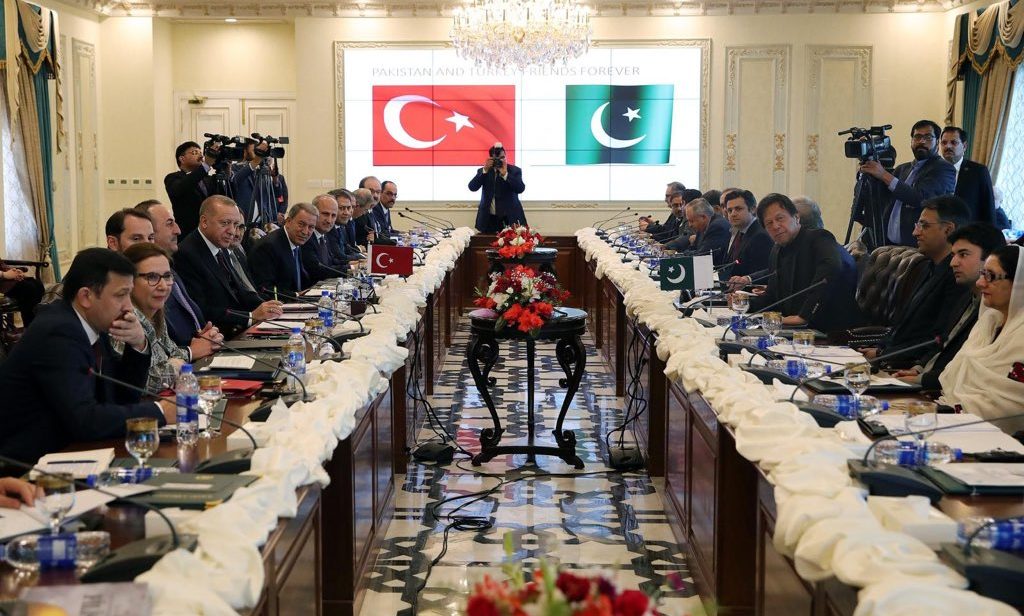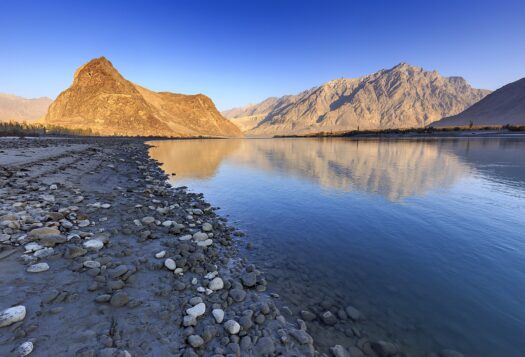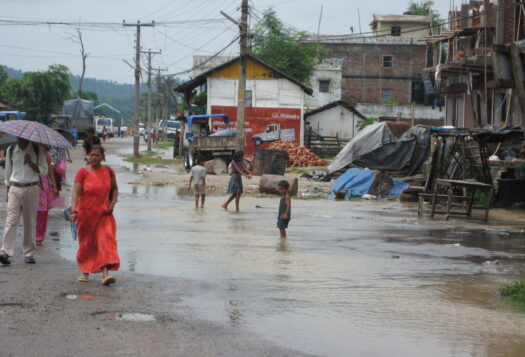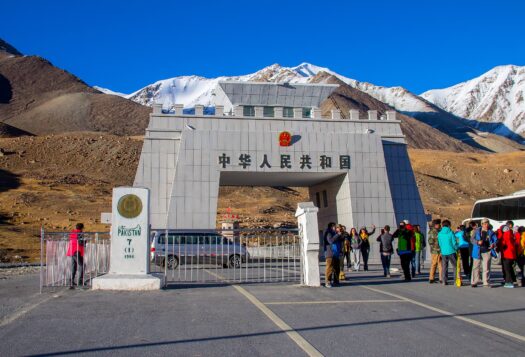
Pakistan and Turkey have always had a positive relationship—and one which has steadily improved under the leadership of Pakistan’s Prime Minister Imran Khan and Turkey’s President Recep Tayyip Erdoğan. On February 14, 2021, President Erdoğan addressed Pakistan’s parliament on a two-day trip to Islamabad—and became the only foreign head of state to have addressed Pakistan’s parliament for the fourth time; President Erdoğan emphasized the history of the enduring bilateral relationship.
Turkey has begun to play a prominent role in Khan’s foreign policy, especially in security and defense cooperation. But Turkey can—and should—be more than just a defense partner. The Khan administration has not sufficiently tapped into the economic potential of this burgeoning bilateral relationship. To discover this seemingly mutually beneficial frontier, Pakistan will need to prioritize economic goals alongside defense-related ones. Although this could be a challenging feat, Pakistan needs to counter the demons of its struggling economy. A foreign policy that prioritizes economic objectives is not only necessary but also critical for Pakistan’s long-term success.
Bilateral Defense Relations
Closely tied to Pakistan-Turkey defense cooperation is their shared Muslim identity. Both states were founded by secular leaders, Mohammad Ali Jinnah and Mustafa Kamal Ataturk, who thought deeply of the intersection of Islam, constitutional rights, and governance. Their mutual fight against British colonialism and oppression dates back to 1919, when Muslims from the subcontinent began the Khilafat Movement to restore the pre-World War I borders of the Ottoman Empire.
Since the onset of the Global War on Terror after the September 11, 2001 attacks, cooperation between Pakistan and Turkey has centered on three issues: counterterrorism, the U.S. war in Afghanistan, and long-term defense cooperation. Both Pakistan and Turkey are acutely aware of terrorism—domestic and international—as each continues to deal with their own secessionist movements; the Balochis in Pakistan and the Kurds in Turkey. Pakistan and Turkey, alongside Afghanistan, have participated in the Pakistan-Afghanistan-Turkey Trilateral Summits to work on shared military exercises and share intelligence information on terrorist activities.
A foreign policy that prioritizes economic objectives is not only necessary but also critical for Pakistan’s long-term success.
Though not yet agreed upon, Pakistani and Turkish defense and government officials have held high-level discussions about manufacturing warplanes and missiles in Pakistan. In 2018, Pakistan collaborated with a Turkish defense company to build the largest warship ever constructed at the Karachi Shipyard. Notably, in the aftermath of the December 2020 Turkey-Pakistan-High-Level Dialogue Group session between Pakistan’s Defense Secretary and Turkey’s Army General, Turkey has been reported to seek Pakistan’s support in pursuing and developing a nuclear weapons program. In addition to arms manufacturing, both countries have also been collaborating on technology—the Turkish Aerospace Industries has created a research and development section at Pakistan’s National University of Science and Technology that will focus on cybersecurity, drone surveillance, and radar technology.
Pakistan and Turkey have also routinely claimed to fight for the rights of Muslims across the world, and, thus, have often supported each other’s territorial disputes. For instance, Pakistan is one of the only countries in the world that does not recognize Armenia as a sovereign state. Pakistan also acknowledges Turkey-ally Azerbaijan’s claims over the disputed territory of Nagorno-Karabakh. In fact, in January of 2021, the foreign ministers of Pakistan, Turkey, and Azerbaijan held talks and issued a joint statement to support their claims to Kashmir, Cyprus, and Nagorno-Karabakh respectively. Prime Minister Khan has also maintained Pakistan’s stance on the Kurds, backing Turkey’s offensive against Kurdish forces in Syria. Turkey, in turn, supports Kashmir openly, much to India’s ire, as it maintains that Kashmir is an internal matter, and views Erdoğan’s support as a “gross interference.” In September 2020, in his address to the UN General Assembly, President Erdoğan won praise from Prime Minister Khan after calling Kashmir a “burning issue” a year after India’s Prime Minister Narendra Modi revoked the Indian-administered Kashmir’s special status. Both countries have overtly supported Palestinians, routinely declaring in the UN and other international forums that neither support any political settlement that does not support the Palestinian people.
Prioritizing Economic Ties
Although defense cooperation and diplomatic support over territorial disputes improve Pakistan’s regional security status, they do not help resolve Pakistan’s core dilemma: a dwindling economy. Pakistan’s economic woes have dominated Prime Minister Khan’s domestic and foreign policies; woes which have been exacerbated by the COVID-19 pandemic. There is no shortage of critics of Khan’s economic policies and plans, and calls for reform keep getting louder. As such, part of Prime Minister Khan’s quest to improve Pakistan’s economy has been to focus on its neighbors and regional partners—and, recently, Turkey has played a key role in this plan.

In January 2021, Khan released a statement on a meeting with Turkish Foreign Minister Mevlut Çavuşoğlu that outlined both countries’ commitment to trade relations and highlighted that investments by Turkish companies in Pakistan have increased by over USD $1 billion. During President Erdoğan’s visit to Pakistan in February 2021, the two countries signed a Strategic Economic Framework agreement that covers a broad spectrum of cooperation in science and technology, defense, tourism, education, and health. While the Pakistan-Turkey Free Trade Agreement (FTA) is still in the works, there are talks of resuming the Pakistan-Iran-Turkey cargo train service to facilitate the movement of goods between these neighbors, though there are concerns about how each can bear the cost of this project. To facilitate the movement of tourists and business personnel, both countries also signed a citizenship agreement last year, and Pakistan launched an e-visa facility earlier this year.
Despite recent economic initiatives, Pakistan should take additional steps to reprioritize this essential aspect of the bilateral equation. Successful completion of ongoing projects with Turkey such as the Trans-Afghan Railway project, CASA-1000, and Turkmenistan-Afghanistan-Pakistan-India (TAPI) gas pipeline could significantly improve Pakistan’s connectivity with Western Asia and Europe. The Turkish foreign minister recently stated that the USD $800 million worth of bilateral trade is not sufficient and should be brought up to its true potential. The Khan administration should include Turkish companies in CPEC projects, especially those in energy and transit infrastructure. Although this might strain relations with Saudi Arabia, considering the low point in Turkey-Saudi Arabia relations since the killing of journalist Jamal Khashoggi, Saudi Arabia would avoid stirring trouble with Pakistan keeping in mind its own investments in CPEC. Additionally, both countries should agree on an FTA that would incentivize mutually beneficial infrastructure projects and foreign investment. Since both countries are eager for their publics to forge a connection, they should also create more people-to-people exchanges, such as student exchange programs, conferences focused on public-private partnerships, and workshops aimed at encouraging startups.
Recognizing economic needs are as important as defense needs is essential for recalibrating the country’s foreign policy agenda, especially when engaging with regional allies like Turkey.
Looking Ahead
Prioritizing economic cooperation centered on trade, financial partnerships, development projects, and tourism would not require Pakistan to give up its security goals or weaken its defense relationship with Turkey. Instead, recognizing economic needs are as important as defense needs is essential for recalibrating the country’s foreign policy agenda, especially when engaging with regional allies like Turkey. Prime Minister Khan has already started taking domestic economic reform seriously by reconstituting the 25-member Economic Advisory Council (EAC) on April 4, 2021. Instead of the finance minister, Prime Minister Khan will be leading the EAC.
Elevating Pakistan’s economic goals to its defense goals may seem counterintuitive—and even irresponsible—to some. And while Pakistan certainly lives in a dangerous neighborhood that demands consistent defense cooperation, Pakistan’s continuously weak economy requires it to become a priority. In other words, Pakistan’s economic woes are no longer simply a domestic issue but a foreign policy challenge. Considering that Turkey is such a close ally, where President Erdoğan has addressed the parliament four times, exploring an economic dimension within the bilateral relationship makes sense. It is yet to be seen if the Khan administration can reprioritize international relations beyond the national security prism.
***
Click here to read this article in Urdu.
Image 1: Pakistan PMO via Twitter
Image 2: ADEM ALTAN/AFP via Getty Images


